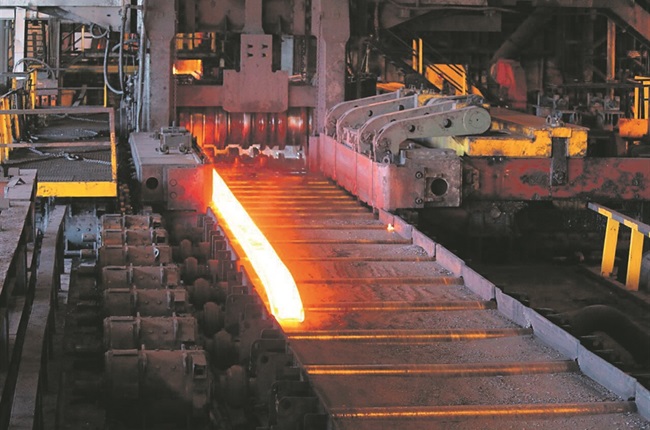The Steel and Engineering Industry Federation of South Africa (Seifsa) says it is still open to negotiations with the National Union of Metalworkers of South Africa (Numsa) to find a resolution to the union’s strike in the sector.
Seifsa held a press briefing on Friday following a briefing by Numsa on Thursday afternoon, in which the union announced that it rejected a 6% offer from Seifsa.
Seifsa believes its offer is fair. But Numsa rejected it on the basis that the union wants the increase implemented on actual rates of pay rather than minimums set by the Metal and Engineering Industries Bargaining Council Main Agreement.
The strike has already been devastating to the sector, with Seifsa estimating that Numsa members have lost out of R100 million worth of wages in the strike’s first week alone. The federation fears that if the strike is protracted, it could be worse than a 2014 strike which took R6 billion from the economy.
The sector is not prone to regular strike action, having seen only six strikes in the past 30 years. Seifsa officials said during the briefing that they remained open to continuing negotiations with Numsa and that they would provide an update on developments next Monday.
Also, at issue is Numsa’s intention to have any wage deal they achieve with employers and their associations extended to the entire sector, a move that the National Employers’ Association of South Africa has pushed back against, saying not all employers can afford to pay the same increase.
Numsa secretary general Irvin Jim said on Thursday that Seifsa revised its 4% offer to a 6% increase for the first year on Wednesday. The union said this must be applied according to the rates each employee is at as opposed to the minimum floor earning category.
At the time of the announcement of a strike, Numsa demanded 8% across the board in the first year, 2% plus CPI improvement factor in the second year, and an opportunity to reopen negotiations if 2% plus CPI does not cover inflation in the third year.
Seifsa president Elias Monage said an offer was made to Numsa earlier in the week with a view of smoothing tensions over in the sector, as the fragmented landscape of steel and engineering wage talks continues to grapple with the impact of the strike.
“Companies on the ground from next week Monday will be planning the week ahead. The negotiations are done and dusted. Those who accept, they accept, and we move on. Those who do not will move accordingly,” said Monage.
Monage said what further complicates the negotiations with Numsa is the fact that many employees in the sector are not unionised and that prevents the Minister of Labour Thulas Nxesi from using his discretion to determine if an agreement must be extended to parties not represented at the talks.
“The more we move in terms of the numbers, we are shrinking the ability to extend the agreements. There are more than 60% of the employees that are not covered by any trade union in the industry. We need to have the majority of the industry to extend the agreement so that the minister can use his discretion,” Monage said.
Seifsa CEO Lucio Trentini said each business in the steel and engineering sector had different needs and different levels of affordability when it came to wages and, as such, this needed to be considered when negotiating wages.
“There are over 8 000 companies in this industry, from everyone that makes switchboards to foundries, to labour-intensive operations to capital-intensive operations. If you go to a foundry, the labour cost in there is very high. If you go to a company that makes switchboards, the labour cost may be lower,” said Trentini.
“Collective bargaining does not take place in a vacuum. We are part of an industry that is part of an economy that is part of the country. The economy has been struggling. The pandemic has ravaged our industry and economy. But even before the pandemic we were on a downward spiral,” Trentini said.
In the steel and engineering sector, each job supports an estimated eight to ten people, so demands of 8% or 9% increases were somewhat understandable. However, Trentini said, the reality indicates that the components of rising expenses don’t compose CPI-related increases.
Trentini said the quantum of the increase the wage increase offer was not a matter of dispute for Seifsa or Numsa, but that the association was 6% on rands and cents, while Numsa wants the increase to be relative to each worker based on their employment level.
Trentini said Seifsa was available to continue negotiating with Numsa and that that the federation hoped to resolve matter with other associations who negotiate wages at separate platforms. He said a conciliation process at this stage would be pointless, as Seifsa was looking to end the strike.
He said a 5% increase would raise the pay of the lowest-pay-scale employees by R2.97 per hour in the first year and R3.34 per hour by the third year.
